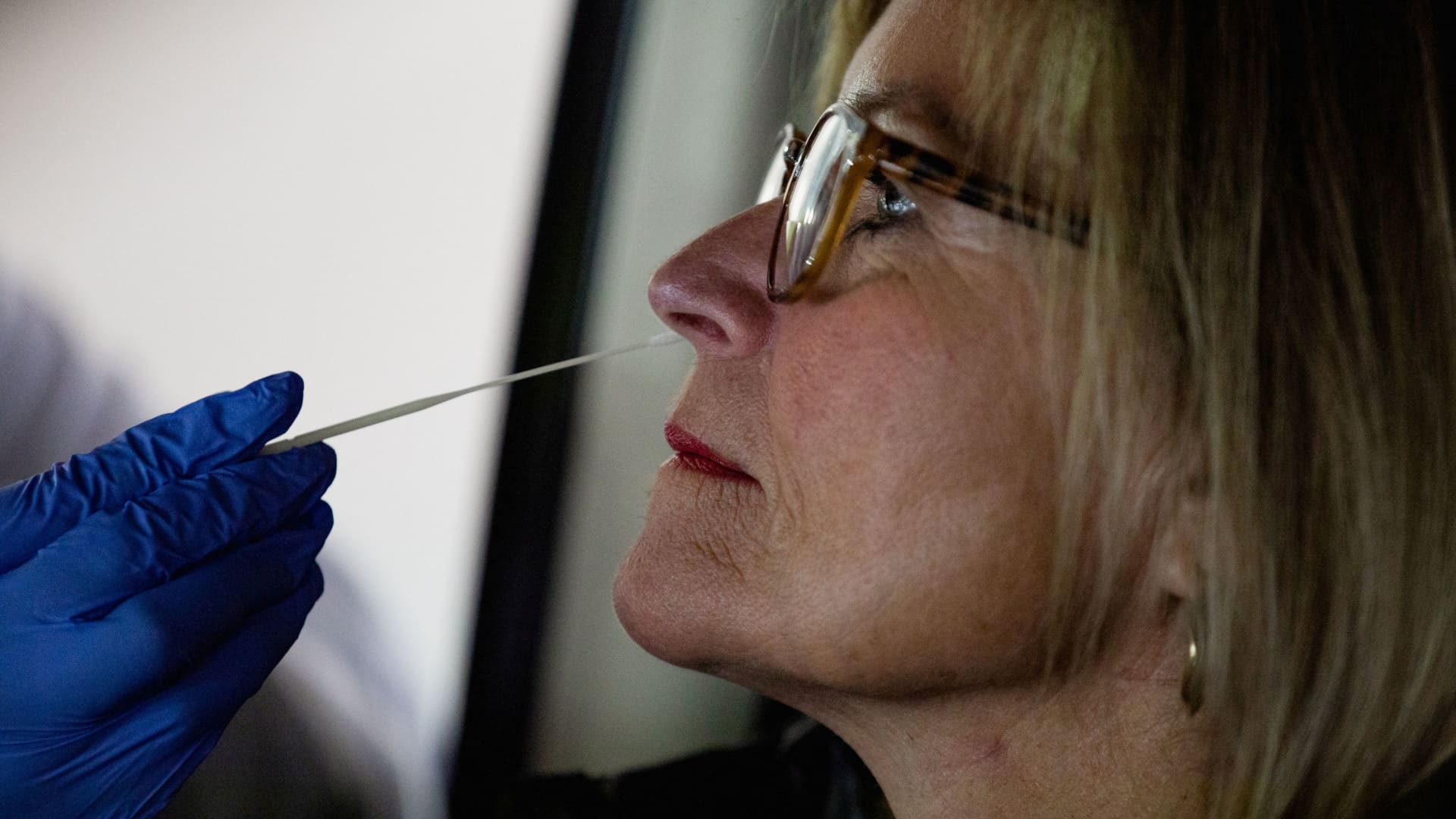
A patient receives a coronavirus disease (COVID-19) test at Sparrow Laboratories Drive-Thru Services in Lansing, Michigan, December 27, 2021.
Emily Elconin | Reuters
People who caught mild cases of Covid-19 during the first year of the pandemic had a higher risk of developing blood clots than those who were not infected, according to a large study published by British scientists this week.
Patients with mild Covid, defined as those not hospitalized, were 2.7 times more likely to develop blood clots, according to the study published in the British Medical Journal’s Heart on Monday. They were also 10 times more likely to die than people who did not have Covid.
Scientists affiliated with Queen Mary University of London followed 18,000 people who caught Covid during the first year of the pandemic and compared their health outcomes with nearly 34,000 people who didn’t.
Participants were tracked until they developed cardiovascular disease, died or until the study ended in March 2021. Most of the study was conducted before the vaccines rolled out in the U.K. in December 2020.
While people with mild Covid had an increased risk of blood clots, patients hospitalized with the virus had a significantly higher risk of cardiovascular disease in general. The risk of cardiovascular disease for mild and severe cases was highest in the first 30 days after infection but continued later.
Patients hospitalized with Covid were 28 times more likely to develop blood clots, 22 times more likely to suffer heart failure, and17 times more likely to have a stroke, according to the study. Overall, they were more than 100 times more likely to die than people who didn’t have Covid.
The scientists said their findings highlight the importance of monitoring even people who had mild Covid for cardiovascular disease over the the long term.
“Our findings highlight the increased cardiovascular risk of individuals with past infection, which are likely to be greater in countries with limited access to vaccination and thus greater population exposure to COVID-19,” the authors of the study wrote.






